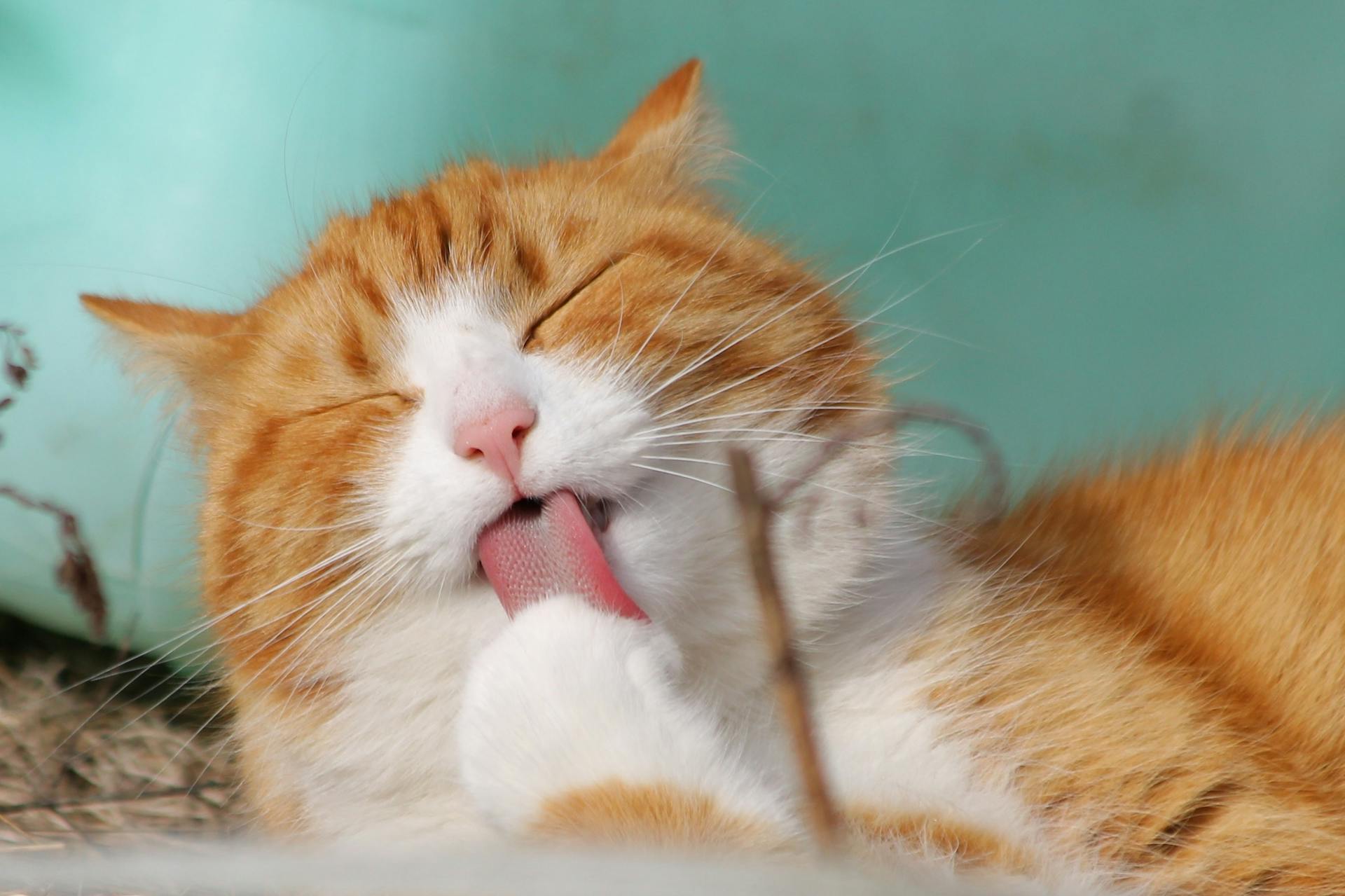
Cats are known to exhibit sudden and unpredictable bursts of energy, which are commonly referred to as "zoomies." These outbursts can be quite entertaining to watch, but they can also be puzzling to understand.
Zoomies in cats are a natural behavior, and they can occur at any age. In fact, kittens as young as a few weeks old have been known to exhibit zoomies.
During a zoomie session, a cat's heart rate and breathing can increase significantly. This is because their body is releasing a surge of energy, often accompanied by rapid movements and playful behavior.
For some cats, zoomies can be triggered by a full meal or a play session.
What Are Zoomies?
Cat zoomies are episodes of frantic running around the house, which can be quite a sight to see. They typically look as if a switch has flipped, according to Pam Johnson-Bennett, CCBC, author and owner of Cat Behavior Associates.
These episodes are known as Frenetic Random Activity Periods, or FRAPs, and are a way for cats to release intense bursts of energy. They're a normal behavior in cats, and it's not uncommon for them to suddenly start running around the house for no apparent reason.
Cats may look as if they've gone crazy, but in reality, they're just letting off steam. These episodes can be intense, but they usually end just as quickly as they started, leaving your kitty to snooze on the couch once again.
What Causes?
Cats of all ages, especially kittens and young cats, have loads of energy. This excess energy is a common reason for the zoomies.
One of the main reasons for the zoomies is pent-up energy. Cats rest and sleep for a majority of the day to conserve energy for short, very active periods.
Cats are ambush predators and they conserve energy for multiple short bursts when hunting. This is especially true for indoor cats who don't get enough exercise.
Indoor cats that don't get enough exercise may be overtaken by the need to use that unspent predatory energy. This can lead to running wildly around the house.
Cats of all ages can experience zoomies from pent-up energy, but the behavior may be more common in younger cats and kittens who have more energy to expend.
When Do They Typically Occur?
Zoomies can occur at any time, but some cats are more prone to them in certain situations. After a trip to the litter box, your cat may exhibit zoomies if they're uncomfortable or their litterbox isn't clean.
Frequent evening or nighttime zoomies can be a sign that your cat hasn't gotten enough exercise throughout the day. I've noticed that my own cat gets zoomies in the evenings if she hasn't had a chance to run around the house during the day.
Stressful triggers or lifestyle changes can also cause zoomies in cats, such as bathtime, moving, or being scared. These situations can cause your cat to want to release their nerves by frantically running around the house.
Indoor cats that don't get enough exercise may experience zoomies due to excess energy. This unspent predatory energy can lead to wild running around the house, and maybe even a knocked-over vase or two.
Consider reading: House Fire
Frequently Asked Questions
Is it healthy for cats to have zoomies?
Yes, zoomies are a completely normal behavior for cats of all ages. However, excessive energy levels may indicate an underlying health condition, such as hyperthyroidism, in older cats.
Do zoomies mean a cat is happy?
Zoomies don't necessarily mean a cat is happy, as excessive zooming can be a sign of under-stimulation and frustration. However, occasional bursts of zoomies can be a normal and natural behavior in cats.
Do zoomies mean a cat is happy?
While occasional zoomies can be a sign of happiness, excessive or daily zoomies may indicate underlying issues like under-stimulation or frustration. If you're concerned about your cat's zoomies, it's worth exploring ways to provide mental and physical stimulation.
Should you ignore cat zoomies?
No, you shouldn't ignore cat zoomies, as they're a normal and healthy behavior. Instead, observe and enjoy your cat's energetic playtime, as it's a sign of their overall well-being.
Do zoomies mean a cat is bored?
No, zoomies are typically a sign of excitement or excess energy, not boredom. Learn more about what triggers zoomies in cats and how to channel their energy in a fun way.
Sources
- https://www.fourpaws.com/pets-101/cat-corner/cat-zoomies-explained
- https://www.dailypaws.com/cats-kittens/behavior/common-cat-behaviors/cat-zoomies
- https://www.armandhammer.com/en/articles/why-do-cats-get-the-zoomies
- https://basepaws.com/blog/exploring-the-nighttime-zoomies-why-do-cats-get-active-at-night
- https://www.cats.org.uk/cats-blog/6-tips-for-preventing-cat-zoomies
Featured Images: pexels.com


